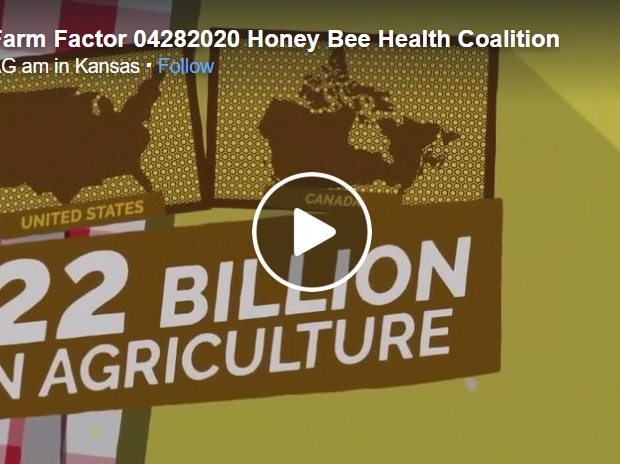News
Honey Bee Health Coalition Partners Beekeepers and Landowners Together to Enhance Pollinator Health
The Honey Bee Health Coalition is finding remarkable results partnering beekeepers and landowners together to support pollinator health through the Bee Integrated Demonstration Project.
“We know there are a lot of challenges facing honey bees and the intent of the Bee Integrated Demonstration Project is to try to solve those multiple challenges in one project and show how that can be done by bringing together best practices,” said Julie Shapiro, senior policy director at the Keystone Policy Center, in a video produced by Healthy Hives 2020, one of the funders of the project.
The Bee Integrated Demonstration Project was piloted in North Dakota, which is both the nation’s leading honey production state and the home of apiaries that provide pollination services across the country. The goal is for beekeepers and producers throughout North America to apply the lessons learned from the project to improve bee and butterfly health in their own areas.
“By putting a suite of best practices together, we’re trying to show how you can take a multifactor problem and create a multifactor, collaborative solution,” said Shapiro.
The Bee Integrated Demonstration Project:
- Pairs local beekeepers and producers to apply best management practices;
- Supports these pairs with expertise, training and resources;
- Measures the impact on bee populations for three years;
- Shares findings with the beekeeping and agricultural communities.
The Honey Bee Health Coalition’s initial pilot of the Bee Integrated approach paired six beekeepers with farmers or landowners and has found that, compared with a control, the best practices implemented together resulted in:
- Larger honey bee colony sizes;
- Increased pollen diversity in the bees’ diets;
- More managed and native bees observed;
- Enhanced motivation by participating farmers and landowners to understand and help their beekeeper partners.
“I’m involved in the Bee Integrated Demonstration Project because I feel like we have a responsibility as beekeepers to tell our story, and we’re working with everybody in agriculture and everybody who has to do with landscape decisions,” said beekeeper Zac Browning.
“I realized [beekeepers] have just as many or more challenges as we do,” said farmer Scott Krogstad, who also saw bees and other pollinators feeding on the forage he planted. “It takes a little time and effort to get the plot established, but…if you weren’t making any money on that ground in the past, it’s just a good decision.”
The Honey Bee Health Coalition is looking to expand the project by encouraging more farmers and beekeepers to join. Details of the program and instructions on how to get involved can be found on the coalition’s website.
Funding and in-kind support for the project is provided by the Almond Board of California, The Bee and Butterfly Habitat Fund, Bayer CropScience’s Healthy Hives 2020 program (administered by Project Apis m.), Corteva Agriscience, the National Honey Board (also administered by Project Apis m.), the North Dakota Outdoor Heritage Fund, the North Dakota Department of Agriculture, the North Central IPM Center, Syngenta, Veto-Pharma, and the Honey Bee Health Coalition. Additional implementation partners include the Bee Informed Partnership, Conservation Technology Information Center, Eastern Missouri Beekeepers Association, and the U.S. Geological Survey.
